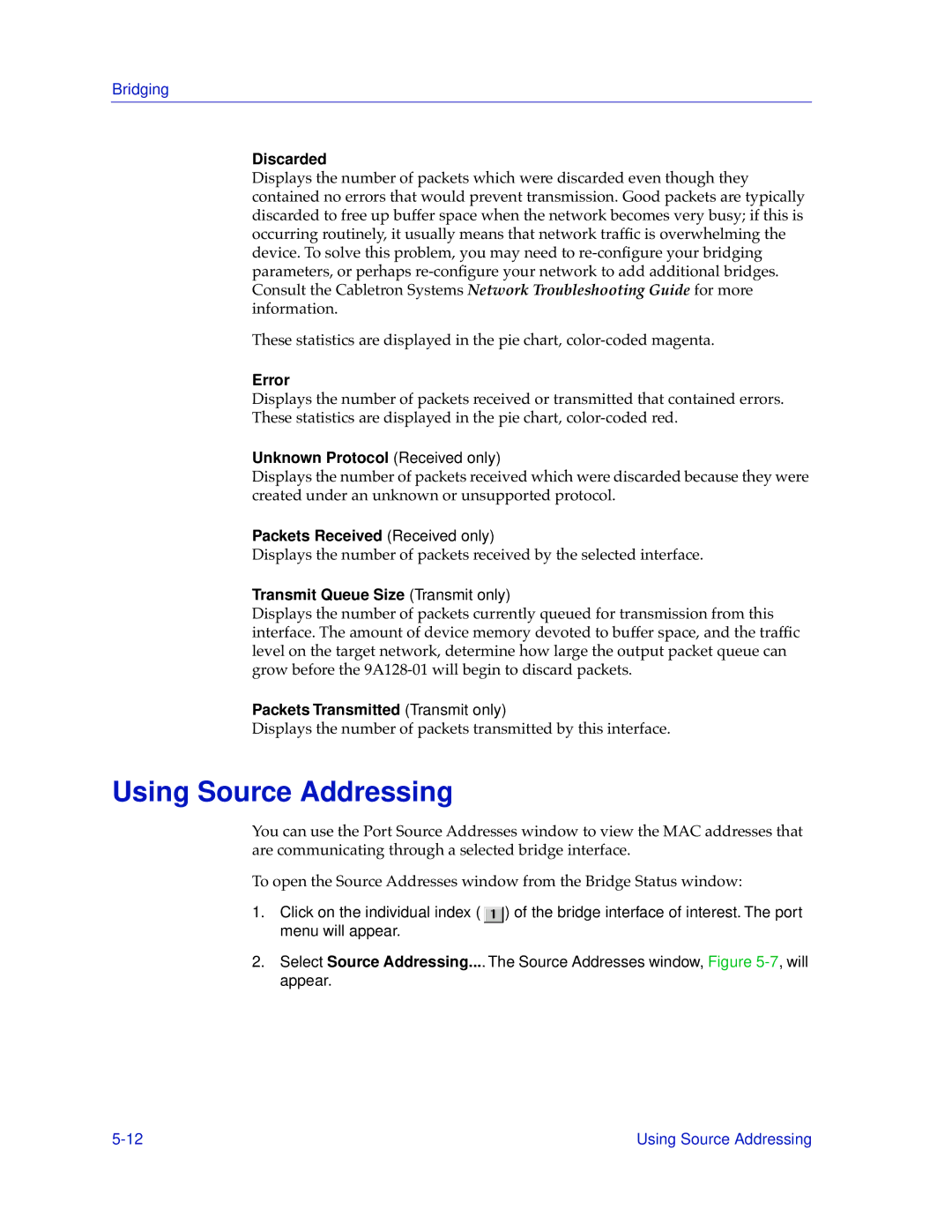Bridging
Discarded
Displays the number of packets which were discarded even though they contained no errors that would prevent transmission. Good packets are typically discarded to free up buffer space when the network becomes very busy; if this is occurring routinely, it usually means that network traffic is overwhelming the device. To solve this problem, you may need to
These statistics are displayed in the pie chart,
Error
Displays the number of packets received or transmitted that contained errors. These statistics are displayed in the pie chart,
Unknown Protocol (Received only)
Displays the number of packets received which were discarded because they were created under an unknown or unsupported protocol.
Packets Received (Received only)
Displays the number of packets received by the selected interface.
Transmit Queue Size (Transmit only)
Displays the number of packets currently queued for transmission from this interface. The amount of device memory devoted to buffer space, and the traffic level on the target network, determine how large the output packet queue can grow before the
Packets Transmitted (Transmit only)
Displays the number of packets transmitted by this interface.
Using Source Addressing
You can use the Port Source Addresses window to view the MAC addresses that are communicating through a selected bridge interface.
To open the Source Addresses window from the Bridge Status window:
1.Click on the individual index ( ![]() ) of the bridge interface of interest. The port menu will appear.
) of the bridge interface of interest. The port menu will appear.
2.Select Source Addressing.... The Source Addresses window, Figure
Using Source Addressing |
